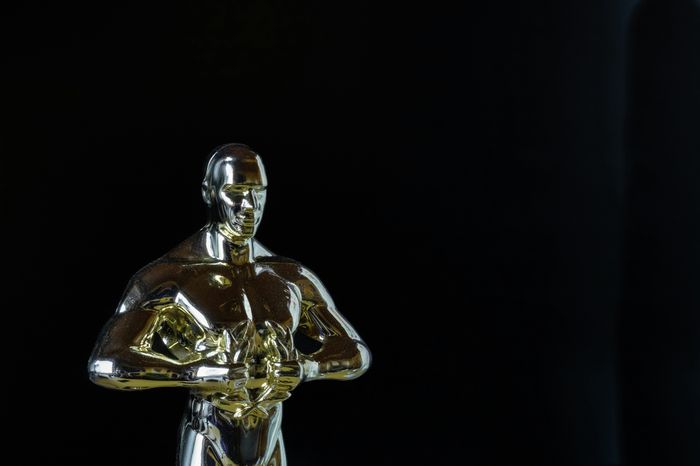When will the biopic bubble burst?
Every life tells a story – I’m just not sure that every story needs a film

Cinema is having an identity crisis. Hollywood is mining the annals of history at extraordinary rates so that the past year of film has seen a biopic boom which shows no signs of stopping. It’s not just historical figures – people who are very much alive and events which feel strikingly recent have also become the subject of biopic narratives, which have evolved (or devolved) into a cinematic paradox. Biopics pack the sprawling messiness of real lives into neatly wrapped two-hour gifts (or a three-hour marathon in the case of epics like Oppenheimer). Is anyone else fed up?
“Biopics, in their essence, are not the villain”
Biopics, in their essence, are not the villain. They have always served an important function, bringing attention to individuals whose achievements, struggles, and very existence have shaped our world. From the inspiring to the controversial, these films offer viewers a chance to experience history through the lens of those who made it. They meet a demand for content that resonates on a personal level, offering a form of escapism rooted in the reality of another’s life. Art is a vital reflective element of history and films about activists, artists, and prominent figures are important to contextualise their accomplishments and educate en masse. Biopics aren’t all bad – but there can be too much of a good thing.

The problem arises when biopics arrive in copy-cat form, glamorise trauma, and are so blatantly produced to make money. This market-driven unoriginality is reflected in the one-word titles of so many recent films (Oppenheimer, Napoleon, Maestro) and medium-budget films selling themselves through household names. The resounding success of Oppenheimer, critically and among the public, has triggered a further explosion in biopics. Earning more than $957 million at the box office and winning seven Oscars, the film continued the trend of the genre drawing notorious critical success. The prestige that accompanies Oscar nominations is a sure-fire motivation for filmmakers. The musical biopic genre is particularly saturated –it’s hardly surprising given that the studios behind these films frequently own the record labels distributing the films’ soundtracks. The familiarity of these stories, coupled with the promise of an emotional journey, makes these films an easy sell. But is this Oscar catnip and easy marketability a sign of flagging creativity?
“Despite their similar subject matter, biopics are the very antithesis of documentary”
If it’s not enough that these films are becoming pervasive and unoriginal, they are also treading a thin line between humanising icons and mythologising them, potentially distorting our collective memory. They shape our perceptions of historical events and individual legacies, sometimes at the cost of truth and nuance. While biopics can provide a compelling narrative structure and dramatisation that documentaries might lack, they risk oversimplification. Be that sidestepping the intricacies of John Nash’s personal life, glossing over the details of Freddy Mercury’s HIV diagnosis, or romanticising Alan Turing’s relationship with Joan Clarke, the blurring of factual accuracy and creative liberty can loosen our critical distinctions. This calls into question the ethical responsibilities of filmmakers in representing real lives in films designed for emotional impact. Despite their similar subject matter, biopics are the very antithesis of documentary, which uncovers the detail – exciting or uncomfortable – of famous lives.
What do The Beatles, Bee Gees, and Bob Dylan have in common? Aside from being alliterative music legends, they are all the subjects of upcoming biopics. The question of biopic fatigue looms large. At this rate, casting famous actors to play my friends in their life stories doesn’t feel quite so out of reach (ok, maybe this is a stretch). The potential for parody, as seen in films like Weird: The Al Yankovic Story, does suggest a growing awareness of the genre’s tropes and clichés. So perhaps the future of biopics lies in their ability to reinvent themselves, avoiding stereotypes and exploring new narrative structures. But I’m not particularly excited by the prospect of watching Amy Winehouse struggle on screen in what feels like yet another popular media profiting from her death or a voyeuristic inspection of her trauma.
If biopics are what cinemas need to recover from the post-Covid slump, then more power to them. But this epidemic is undoubtedly “Oscar-baiting” and feeding us diluted accounts of history, turning the box office into a yearbook. Famous lives can provide the foundations for compelling narratives, building towards major events, inventions, or historical denouements. Indeed, every life tells a story - but I’m just not sure that every story needs a film.
 Music / The pipes are calling: the life of a Cambridge Organ Scholar25 April 2025
Music / The pipes are calling: the life of a Cambridge Organ Scholar25 April 2025 News / Candidates clash over Chancellorship25 April 2025
News / Candidates clash over Chancellorship25 April 2025 Interviews / Dr Ally Louks on going viral for all the wrong reasons25 April 2025
Interviews / Dr Ally Louks on going viral for all the wrong reasons25 April 2025 News / Cambridge professor paid over $1 million for FBI intel since 199125 April 2025
News / Cambridge professor paid over $1 million for FBI intel since 199125 April 2025 Comment / Cambridge builds up the housing crisis25 April 2025
Comment / Cambridge builds up the housing crisis25 April 2025






